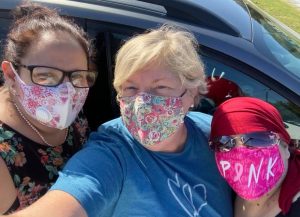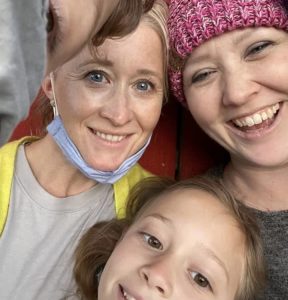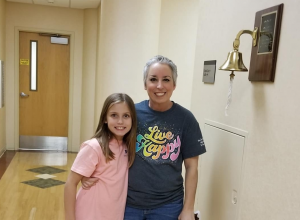FAMILIES & CAREGIVERS
Caregivers and those closest to cancer patients are often called “co-survivors” in many cancer forums. Co-survivors might be spouses or partners, children or parents, or very close friends. If you are a co-survivor, it’s important to remember that you are vital to the well-being of the person with cancer. You aren’t having chemo, radiation, or an operation, but you share in the worry, waiting, medical bills, and insurance questions. We understand that the stress is unbelievable.
- American Cancer Society has a vast library of information on supporting someone you love who has cancer. Topics range from talking to children about cancer to hospice care.
- Caregiver Resource Guide by the American Cancer Society is a downloadable document.
- Caring for the Caregiver booklet is another excellent resource published by Cancer.gov. It covers topics like taking care of yourself, talking to others about cancer, and going on medical visits.
- Center for Disease Control and Prevention (CDC) provides a list of publications around caregiving.
- Caring.com specializes in helping older adults navigate cancer care decisions, including senior living options and overcoming barriers to receiving cancer care.
CHILDREN
If there are children in the family of the person with cancer, there is an added burden in helping them cope with their parent’s diagnosis. Even children who don’t seem to be showing any outward signs of stress are feeling it. Children don’t necessarily know how to express what they feel when their parent is in danger. Depending upon their age or the way their parents are explaining things, they may have a different level of understanding what is going on.
Every child is unique, but here are some things that you as either the parent with cancer or a close loved one might keep in mind in helping the child cope:
HOSPITAL VISITS: If overnight stays in the hospital are part of the treatment plan, check to see if the hospital or type of treatment allows for children to visit. You’ll also want to determine if the child (or parent) is comfortable in a hospital setting. Seeing a parent in a hospital bed might be traumatic.
LONG-TERM CARE: For single parents, a plan for care over a length of time during recovery, or in worst cases, a plan for if the parent does not survive treatment, is very important. Making these plans requires candid conversations about expectations and the needs of the child. Having a written document and will regarding the wishes of the parent is vital. Resources for appointing guardianship can be found online, or you can contact your legal representative.
MENTAL HEALTH: The trauma, fear, and concern may stick around in the mind of a child long after the cancer has been defeated. There are many studies that suggest that some children show the same symptoms as veterans with Post Traumatic Stress Disorder. Communicate with your child’s school about your family situation. Many schools have resource centers and counselors prepared to assist you.




